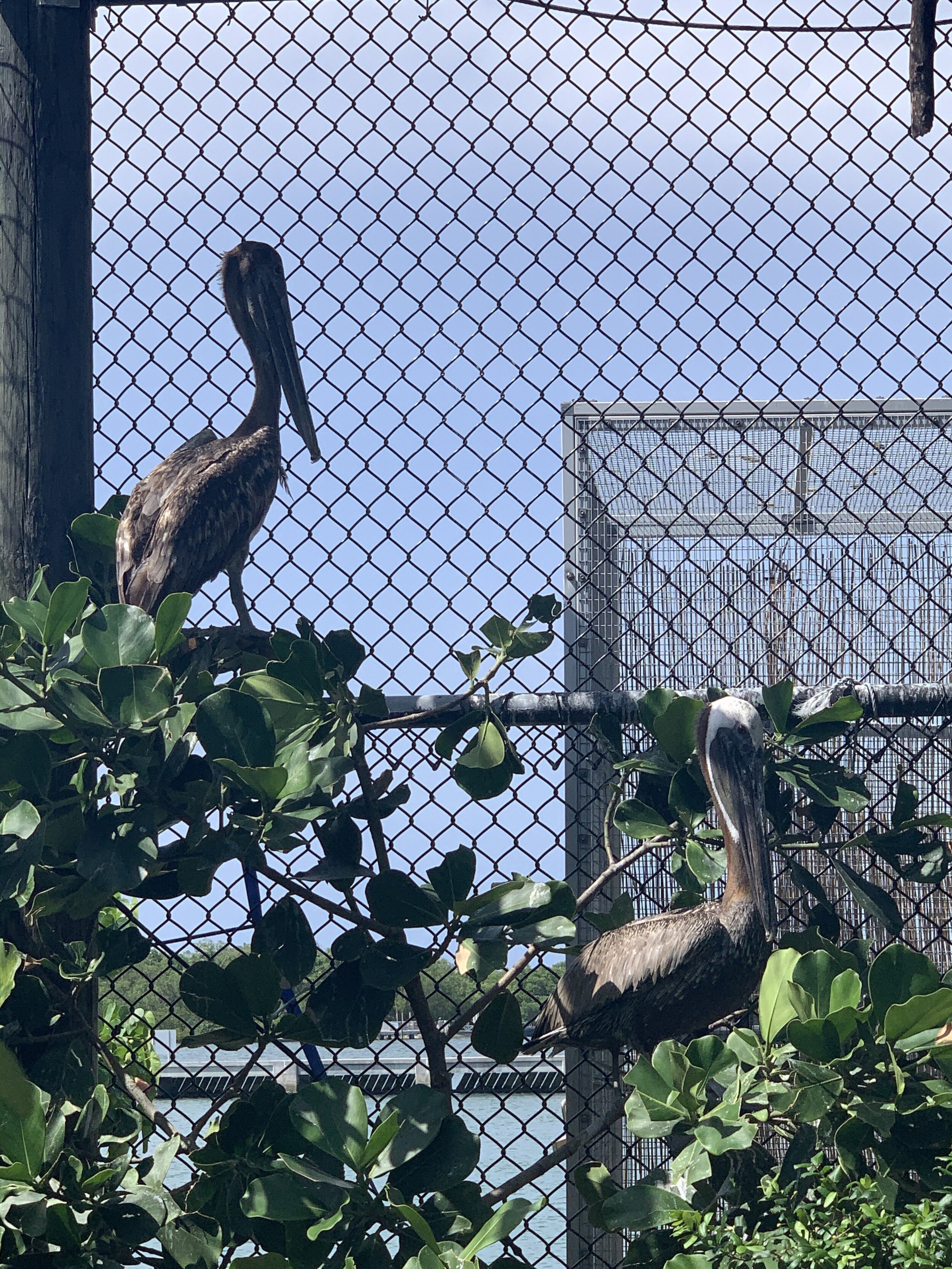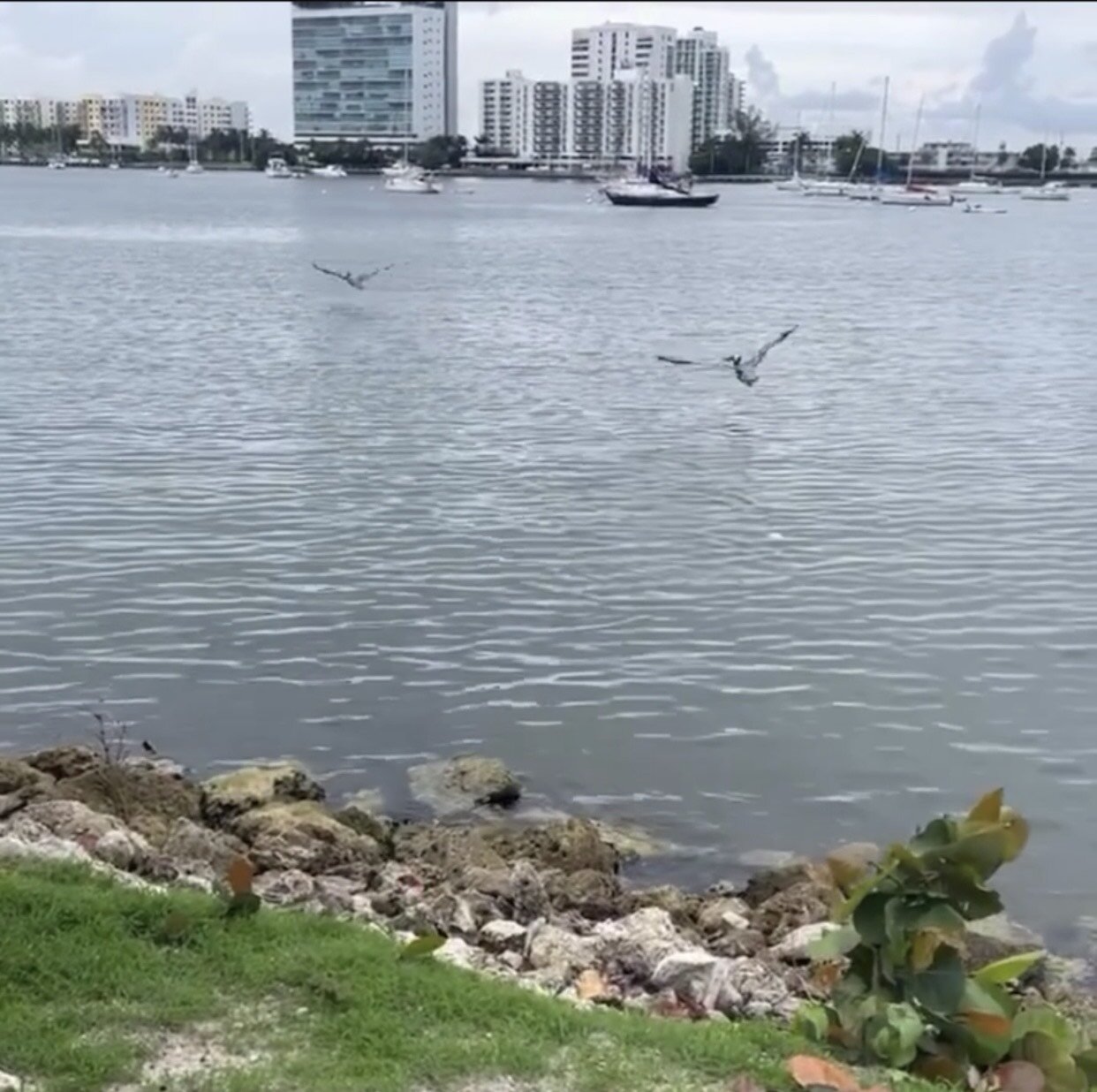Written by: Nicole Perez, PHSS Intern
Nothing is more inviting for a fishing day than beautiful, shimmering south Florida waters. From our perspective, it's the perfect opportunity to take in some fresh air and enjoy a little of mother nature. For our pelican patients at Pelican Harbor Seabird Station, their story is often a different one from ours. Brown Pelican patients 21-1052 and 21-1179, among many others, recall a fishing day as the day they were removed from their natural habitat in order to be treated for hook-related injuries. Patient 1052 arrived at our clinic on May 23rd, 2021 with a sabiki hook attached to its wing near the left humerus and multiple lacerations on his pouch. Patient 1179 arrived at our clinic on June 14th, 2021 with a treble hook pierced through the skin and muscle on its right wing and wrist area.
Both patients were treated and monitored accordingly throughout their stay and recovery process at our clinic. Pelican 1052 required surgery to repair the pouch tear and pelican 1179 was treated for its wounds. Luckily for these two patients, there were no swallowed hooks or fractures and they recovered well. We’re glad to announce that both patients were released on June 30th, 2021 back into their beautiful natural habitat.
Since its founding in 1980, Pelican Harbor Seabird Station has treated over 9,000 pelicans, hundreds of which have arrived entangled in fishing gear or have hook-related injuries. While patients 1052 and 1179 were given a second chance at life, others were not so fortunate. You have the power to help us protect these birds by being cautious when fishing and disposing of your fishing tackle properly.
If you're not already hooked on why saving our brown pelicans is vital, here are some cool facts about them:
Brown Pelicans were on the brink of extinction 40 years ago largely due to DDT (a harmful pesticide that has since then been banned). After being placed on the Endangered Species List, the Brown Pelican have since made a full recovery
Brown pelicans can plummet over 60 feet to catch fish
Their pouch can hold more than 2.5 gallons of water
While Florida takes the title for “Fishing Capital of the World”, it is important to remember that we are not the only ones who enjoy being out in nature, and our actions can greatly affect that of wildlife. When going fishing, it is important to watch out for any closeby wildlife and protect them from any fishing gear that may be near. If you accidentally hook a seabird, do not cut the line! Do not shake the line to loosen the hook as this will most likely injure the bird further. Instead, slowly reel them in close and carefully contain them while taking measures to protect yourself as well. Often, seabirds have long bills; therefore keeping sunglasses nearby will come in handy when handling the injured wildlife. For stressed/ feisty birds, putting a towel over them can help calm them allowing you to remove the hook or fishing gear safely. Once you have the bird safely contained, contact your local wildlife rehabilitation center for further assistance. After a fishing trip, remember to properly dispose of any fishing line/ gear that may have been left behind to prevent wildlife entanglement.
“Wade into life
Look beneath the surface
Spread your wings
Keep your beak clean
Soar over rough waters
Stretch yourself
Go fish!”
-Advice from a pelican Bibliography


Sources:
https://myfwc.com/education/wildlife/unhook/?redirect=unhook
https://seahistory.org/sea-history-for-kids/brown-pelicans/
https://abcbirds.org/bird/brown-pelican/



